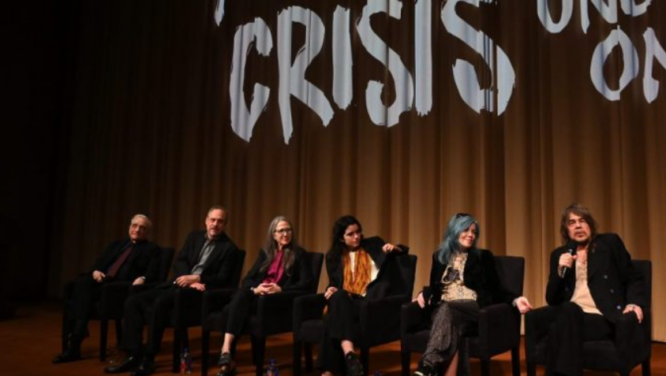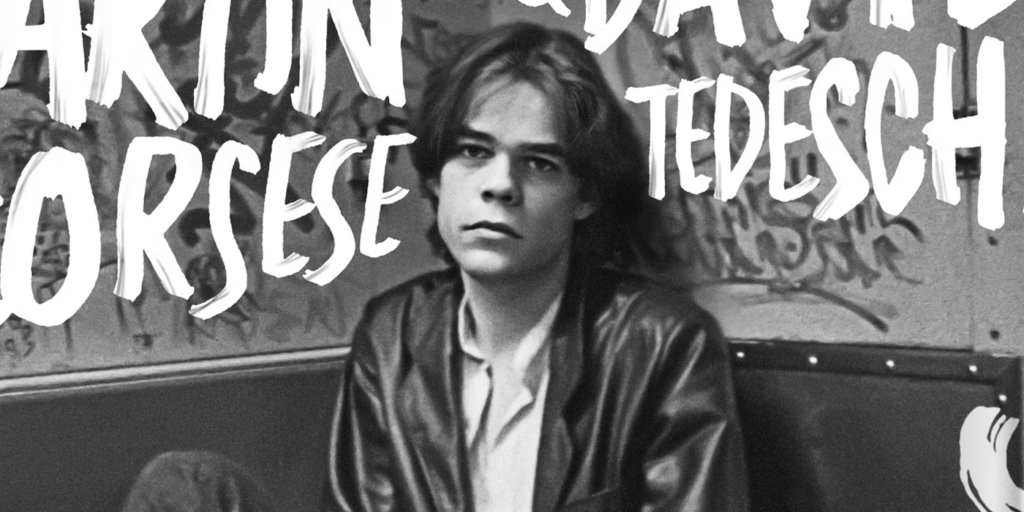
Scorsese and Johansen Discuss Making “Personality Crisis: One Night Only” During Pandemic 2023
Martin Scorsese made “Mean Streets” in 1973 with the New York Dolls’ groundbreaking debut album.
Later, Scorsese’s HBO shows “Boardwalk Empire” and “Vinyl” included Dolls vocalist David Johansen’s music. Scorsese listens to Johansen’s Sirius XM show “Mansion of Fun.”
Finally, after seeing Johansen’s career-spanning cabaret set at the Café Carlyle, Scorsese, a legendary New York storyteller, decided to make a documentary about the proto-punk Staten Islander. “Personality Crisis: One Night Only,” which premiered on Showtime on April 14, follows Johansen from the Dolls to the lounge-y pop of Buster Poindexter to his current life as a husband, stepfather, and New York music scene eminence grise.
At the Linwood Dunn Theater in Hollywood on April 25, Scorsese, Johansen, “Personality” co-director and editor David Tedeschi, and executive producer Margaret Bodde discussed the feature documentary. Johansen’s wife, Mara Hennessey, an executive producer, and his stepdaughter, Leah, who interviews him for the film, also attended.

Scorsese reminded the assembly that Johansen’s musicology had influenced him for 25-30 years.
Johansen’s Café Carlyle performance inspired Scorsese, Ellen, Tedeschi, and Bodde to make the film.
Scorsese called it “beautiful and moving”. “The music, lyrics, and presence were amazing. We asked each other, “What do you want to do?” We said, “Well, let’s shoot it.”
“Personality Crisis” is based on Johansen’s January 2020 Café Carlyle performance. The COVID-19 pandemic derailed the documentary weeks later. That led to Leah Hennessey interviewing Johansen in their quarantined Staten Island home. Scorsese and Tedeschi quickly realized that Mara and Leah would enrich the artist’s depiction.
“David isn’t cranky. His background doesn’t interest him. “He’s not interested,” remarked Leah. “I started doing these interviews almost like anthropological data gathering.”
As a young director, Leah felt the pressure of showing her work to Scorsese. Film school students know what it’s like to shoot alone. I don’t need a crew is your hubris. “All the recorders stopped and the cameras broke,” Leah stated. “I had to give Scorsese all my footage.”

Johansen confesses he needed convincing to accept a biopic. Johansen considered a Broadway career after seeing Bruce Springsteen’s success. Pandemic closed that outlet.
Johansen usually refuses documentarians.
“A lot of people do music documentaries and ask me to be in them,” Johansen said. I usually declined. Because that’s the worst thing to have an opinion and then see it on TV two years later.”
Interviewing her stepfather taught Leah to listen better. “I think it was the first time in our lives that I got a word in edgewise,” Johansen said.
Scorsese also advised Leah on documentary filmmaking. The 1974 documentary “Italian-American” about his parents, Charles and Catherine Scorsese, taught him a lot.
“I hit the slate and my mother took over,” Scorsese added. My father first refused to participate. She got him to sit closer to her on the couch. I then asked some questions. I learned to quiet up and listen.So I told Leah, ‘Don’t force it.’ He’ll speak. It will.”
“Personality Crisis” features archival video of the Dolls and Johansen throughout his career. Johansen described his first performance at a Battle of the Bands event in Staten Island during the panel.
“I closed my eyes and sang ‘Oh baby, Boogaloo down Broadway’ and when I was done I thought, Why were they applauding,” he says. “Great moment. I made it my career.”
